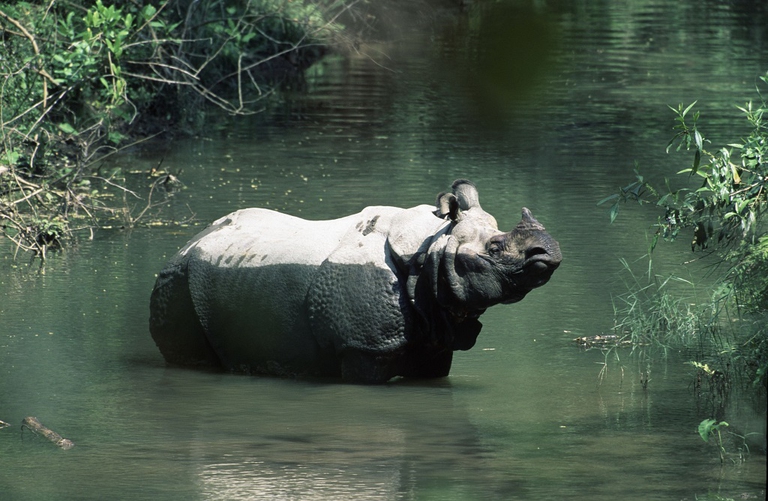
Our species took its first steps in a world covered in trees. Today, forests offer us sustenance, shelter, and clean the air that we breathe.
World Environment Day was established in 1972 during the United Nations Conference on the Human Environment, which led to the creation of the United Nations Environment Programme (UNEP). Its aim is “encouraging worldwide awareness and action for the protection of our environment”. Since its inception, WED has developed into a global platform for raising awareness and taking action,
World Environment Day was established in 1972 during the United Nations Conference on the Human Environment, which led to the creation of the United Nations Environment Programme (UNEP). Its aim is “encouraging worldwide awareness and action for the protection of our environment”. Since its inception, WED has developed into a global platform for raising awareness and taking action, and it is celebrated in over 100 countries.
In occasion of WED, people are invited to take care of the Earth and take action in order to be part of the change. The Earth is biodiversity, natural resources, water, food and air, and much more.
WED 2006’s theme was “Deserts and Desertification” and celebrations were hosted by Algiers, in Algeria. WED 2007’s theme was “Melting Ice? – A Hot Topic”, hosted by Tromsø, in Norway. The 2008 edition’s slogan was “Kick the Habit! Towards a Low Carbon Economy”, and was hosted by Wellington, New Zealand. In 2009, the theme was “Your Planet Needs You-UNite to Combat Climate Change”, hosted by Mexico. The country launched its commitment to combating climate change, including through the employment of carbon credits. In fact, it participated in UNEP’s “Billion Tree Campaign”.
2010 was centred on biodiversity and was hosted by Rwanda. In 2011, UNEP dedicated WED to the safeguarding of our planet’s lungs. Forests cover 31 per cent of land and primary forests cover 36 per cent of the world’s forested areas. In 2012, Rio de Janeiro hosted the celebrations under the slogan “Green Economy: Does it Include You?”
WED 2013 was themed on the footprint of food, under the slogan “Think, Eat, Save”. The UN reminded us that one third of all food produced fails to make it from farm to table, which means 1.3 billion tonnes of food, worth 1,000 billion dollars, are wasted. This amount would be enough to feed the 870 million people suffering from hunger around the world, as well as reduce CO2 emissions significantly. 2014 was dedicated to the sea, under the theme “Raise your Voice not the Sea Level!” in order to raise awareness on the problems island nations are facing due to rising sea levels. In 2015, WED was hosted by Milan, Italy, under the theme “Seven Billion People. One Planet. Consume with Care”. That year, WED was the most popular subject on Twitter in more than 20 countries. “Zero tolerance for the illegal trade in wildlife” was the theme of the 2016 edition, hosted by Angola, whilst the 2017 edition, was held under the slogan “Connecting People with Nature” to highlight the crucial role we play in protecting the planet, to which we are closely linked and depend on, with official celebrations taking place in Canada. Whilst the 2018 edition, hosted by India, aimed to “Beat Plastic Pollution”, in 2019 WED wants to focus efforts to “Beat Air Pollution”, an issue chosen by China, a country deeply affected by this environmental problem.
Year after year, “the aim of World Environment Day is giving a face to environmental issues while making people active agents of fair and sustainable development; raising the awareness on the importance of community in environmental action; promoting partnerships to ensure a safe, thriving future for nations and populations”.
Siamo anche su WhatsApp. Segui il canale ufficiale LifeGate per restare aggiornata, aggiornato sulle ultime notizie e sulle nostre attività.
![]()
Quest'opera è distribuita con Licenza Creative Commons Attribuzione - Non commerciale - Non opere derivate 4.0 Internazionale.
Our species took its first steps in a world covered in trees. Today, forests offer us sustenance, shelter, and clean the air that we breathe.
Poachers in Africa are encroaching on wildlife land and killing rhinos in travel hot spots now devoid of visitors due to the coronavirus pandemic.
Actor and environmental activist Leonardo DiCaprio has contributed two million dollars to a fund to protect Virunga National Park in Congo from threats such as terrorism, the coronavirus and poaching.
For the first time in seventeen years, Iceland’s two main whaling companies won’t resume whale hunting. The announcement concerns this year’s season but could carry into the future.
The relationship between the coronavirus and wildlife is complex: while the pandemic may lead to a reduction in the illegal trade in wild animals, it may also encourage it in other respects.
The largest coral reef in the world is severely threatened by climate change, but researchers are developing strategies that could contribute to saving the Great Barrier Reef.
NGO Free the Bears has opened a mountain sanctuary for moon bears in Laos. With the government’s help, it aims to close all bile farms by 2022.
Seychelles have extended its marine protected area, which now covers over 400,000 square kilometres, an area larger than Germany.
The tapir was reintroduced into Brazil’s Atlantic Forest, the country’s most at-risk ecosystem. The species can play a key role in the forest’s recovery.








